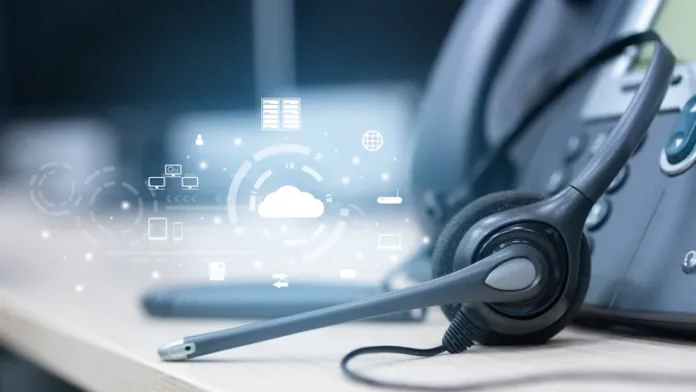All call centers face cybersecurity threats because they handle information like credit card numbers, health records, and personal purchase history. However, call centers that support federal agencies have the added risk of handling highly sensitive information, making them prime targets for cybercriminals.
The most common types of cybersecurity threats that put call centers in jeopardy include:
- Phishing attacks are a common problem, using emails to lure people into giving up sensitive information. These attacks often involve suspicious links or attachments that can compromise your data and system security. If the hackers succeed, they can gain access into important network resources such as email accounts and hard drives.
- DoS or Denial of service attacks are harmful disruptions to call centers by overwhelming them with artificial traffic such as too many calls or false requests. This can cause downtime and operational issues, making systems unavailable to legitimate users. Call centers might become targets during protests, for example, which can interrupt service and communication.
- Hackers can also find weaknesses and gain access to call center databases, putting data security and privacy at risk. Once they’re in, they can steal or alter sensitive information, potentially disrupting government operations.
- Internal security issues, such as employee oversight or negligence, are also a threat. Human errors can lead to data breaches or system issues.
To handle cybersecurity risks, it is imperative to use a variety of strategies and tools like continuous training and education, hardware, and software. Here are some initial steps call center administrators should take to establish a first line of defense against cybersecurity attacks:
- Strong Security Profiles: Make sure your email security is top-notch to catch and stop phishing attempts. This means using email filters, verifying links, and training employees to spot phishing scams. Regular security awareness sessions can help your team recognize and report phishing attempts quickly.
- Proactive Monitoring and Alerts: Use intrusion detection and prevention systems to catch and stop DoS attacks in real time. Have plans ready for quick responses and work with service providers to block suspicious traffic and keep services running. Network segmentation and redundancy can help by spreading incoming traffic across multiple servers or data centers.
- Continuous Education and Awareness: Build an environment of cybersecurity awareness and responsibility among your staff with ongoing training and education. Encourage employees to report security issues immediately and provide clear guidelines for handling incidents. Regular security drills and simulations can help test readiness and improve response skills.
- Access Control and Authentication: Make sure to use strict access controls and multi-factor authentication (MFA) to keep sensitive data safe and ensure only the right people can access systems, reducing the risk of internal breaches. Keep your databases secure with encryption, role-based access controls, and regular vulnerability checks to prevent unauthorized access and catch any unusual activity. Regular security audits and compliance checks are key to maintaining high-security standards.
- Regulatory Compliance: Even if federal call centers might not have to directly follow rules like General Data Protection Regulation (GDPR) or Payment Card Industry Data Security Standards (PCI DSS), they should still follow their own security standards with regular checks and updates to prevent hacking. Strong security measures are crucial for keeping things running smoothly and safely, even without strict regulations.
Federal call centers face a number of challenges with constant threats and changing risks in cybersecurity. But by using strong security measures, staying educated, and following internal processes, these call centers can handle risks and stay secure. Prioritizing cybersecurity helps protect sensitive data, keeps operations running smoothly, and ensures reliable service for the millions of people who depend on them. Embracing these strategies not only protects the call centers but also builds trust and confidence among the public.
Source link






